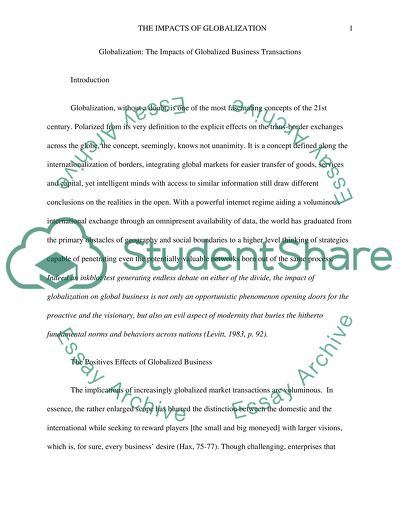Cite this document
(“Globalization: The Impacts of Globalized Business Transactions Research Paper”, n.d.)
Globalization: The Impacts of Globalized Business Transactions Research Paper. Retrieved from https://studentshare.org/macro-microeconomics/1478450-global-business
Globalization: The Impacts of Globalized Business Transactions Research Paper. Retrieved from https://studentshare.org/macro-microeconomics/1478450-global-business
(Globalization: The Impacts of Globalized Business Transactions Research Paper)
Globalization: The Impacts of Globalized Business Transactions Research Paper. https://studentshare.org/macro-microeconomics/1478450-global-business.
Globalization: The Impacts of Globalized Business Transactions Research Paper. https://studentshare.org/macro-microeconomics/1478450-global-business.
“Globalization: The Impacts of Globalized Business Transactions Research Paper”, n.d. https://studentshare.org/macro-microeconomics/1478450-global-business.


